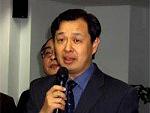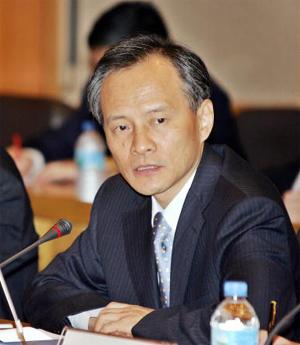TOKYO - According to many Japanese media, a senior Chinese diplomat urged the Japanese government to implement tighter media controls upon openly expressing his discontentment over Japan’s negative media reports regarding China.
The remarks were made by Cui Tiankai, Director-General of the Asian Affairs Department of China’s Foreign Ministry, in a China-Japan coordination meeting in Beijing on January 9. The reports triggered strong reverberation in Japanese society and have led many Japanese citizens to wonder if the Chinese communist regime is trying to export its “experience” of media control to Japan.
Mainichi Daily News also reported on January 10 that Kong Quan, China’s Foreign Ministry spokesman, complained in a regular press conference on January 9 that Japanese media has failed to provide sufficient news coverage about Hu Jintao’s five-item proposal regarding the China-Japan relationship announced last April.
Mr. Kong claimed that “the purpose of the media is to enhance the mutual understanding and trust between the two countries” and requested that the Japanese government give “instructions” to its country’s media. In response, the Director of Japan’s Foreign Ministry’s Asian and Oceanian Affairs Bureau, Kenichiro Sasae, replied, “That is impossible.”
In a commentary, Mainichi Daily News said that Japan’s freedom of press is protected by the constitution, and that the statement made by the Chinese communist regime, which continues to exert rigorous surveillance and control over media, simply reflects the fact that the Chinese authorities’ understanding of Japan’s freedom of press is inadequate.
However, the remarks made by the Chinese authorities may stem from the “Agreement of Reporters Exchange between China and Japan,” which has been influencing Japanese media’s reports about China-related subjects for decades. The agreement, signed in 1964, stipulates that the Japanese media have to obey three principles before they can accredit reporters to China.
- The media are not hostile to China.
- The media will not issue commentaries that support Taiwan-Independence.
- The media shall not hinder the diplomatic normalization between China and Japan.
This agreement has acted as a trammel, restraining Japanese media from reporting China-related issues freely. Because of providing news coverage unfavorable to the Chinese communist regime, all of the nine Japanese media that originally ran permanent offices in Beijing were expelled one after another except for the Asahi Shinbun , which has been friendly to the Chinese regime. Therefore, Japan’s domestic media have adopted a position not to publish unfavorable remarks about the Chinese communist regime. This situation kept unchanged until last year, during which the anti-Japan incidents occurred.


